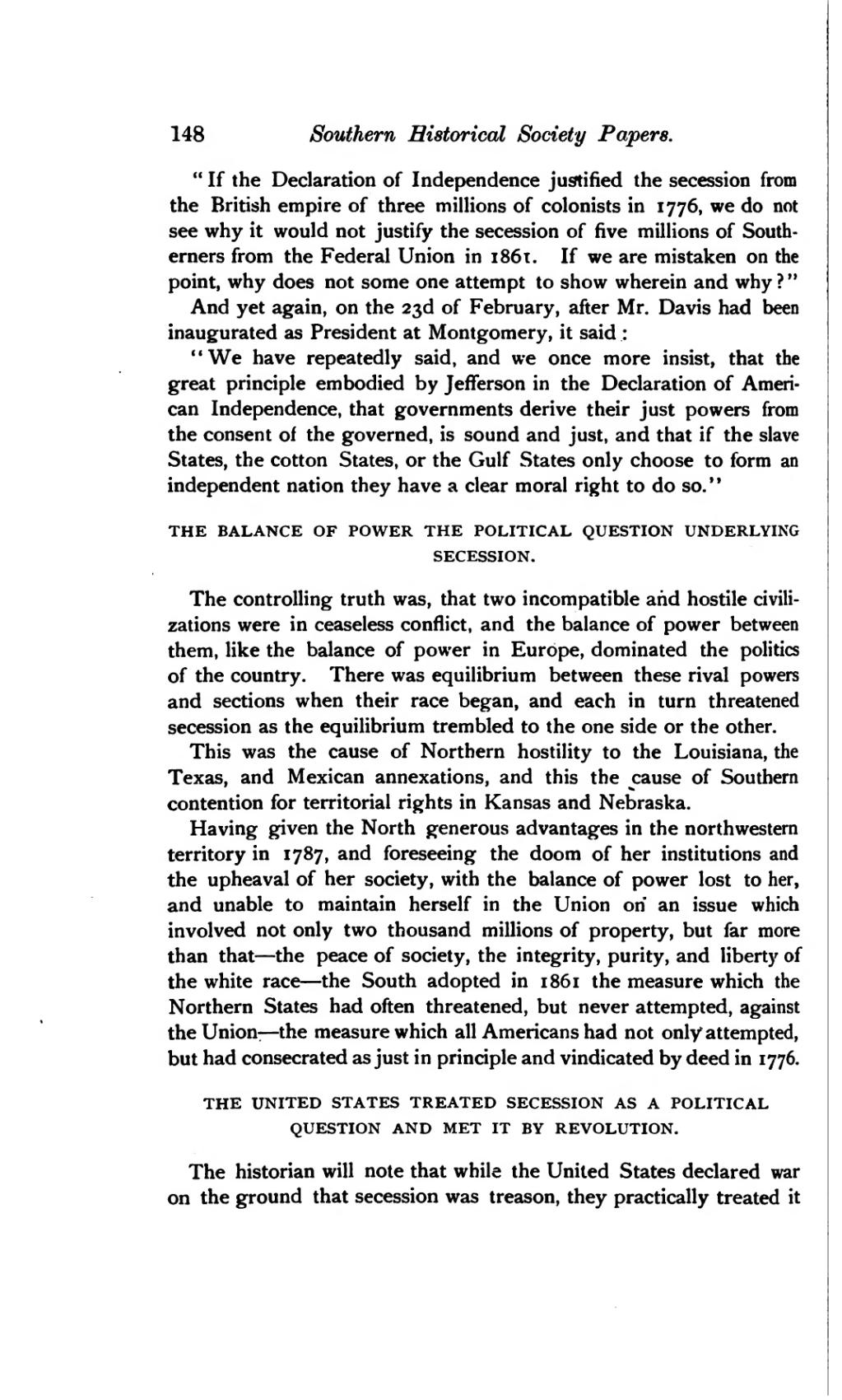148 Southern Historical Society Papers.
" If the Declaration of Independence justified the secession from the British empire of three millions of colonists in 1776, we do not see why it would not justify the secession of five millions of South- erners from the Federal Union in 186 1. If we are mistaken on the point, why does not some one attempt to show wherein and why?*'
And yet again, on the 23d of February, after Mr. Davis had been inaugurated as President at Montgomery, it said :
- We have repeatedly said, and we once more insist, that the
great principle embodied by Jefferson in the Declaration of Ameri- can Independence, that governments derive their just powers from the consent of the governed, is sound and just, and that if the slave States, the cotton States, or the Gulf States only choose to form an independent nation they have a clear moral right to do so.**
THE BALANCE OF POWER THE POLITICAL QUESTION UNDERLYING
SECESSION.
The controlling truth was, that two incompatible and hostile civili- zations were in ceaseless conflict, and the balance of power between them, like the balance of power in Europe, dominated the politics of the country. There was equilibrium between these rival powers and sections when their race began, and each in turn threatened secession as the equilibrium trembled to the one side or the other.
This was the cause of Northern hostility to the Louisiana, the Texas, and Mexican annexations, and this the cause of Southern contention for territorial rights in Kansas and Nebraska.
Having given the North generous advantages in the northwestern territory in 1787, and foreseeing the doom of her institutions and the upheaval of her society, with the balance of power lost to her, and unable to maintain herself in the Union on an issue which involved not only two thousand millions of property, but far more than that — the peace of society, the integrity, purity, and liberty of the white race — the South adopted in 1861 the measure which the Northern States had often threatened, but never attempted, against the Union— the measure which all Americans had not only attempted, but had consecrated as just in principle and vindicated by deed in 1776.
THE UNITED STATES TREATED SECESSION AS A POLITICAL QUESTION AND MET IT BY REVOLUTION.
The historian will note that while the United States declared war on the ground that secession was treason, they practically treated it
